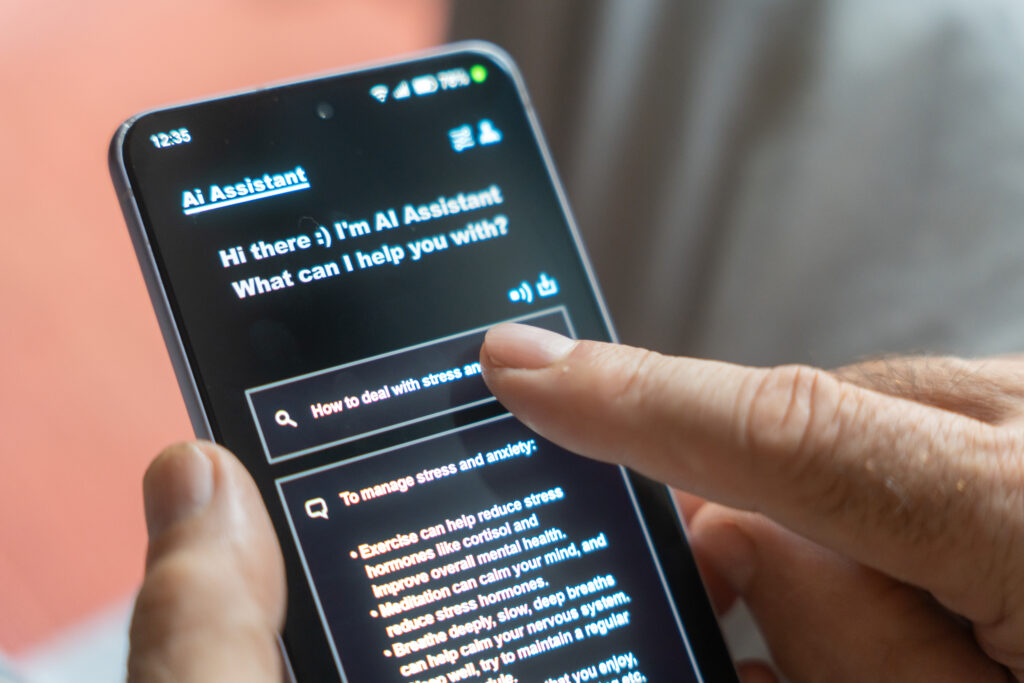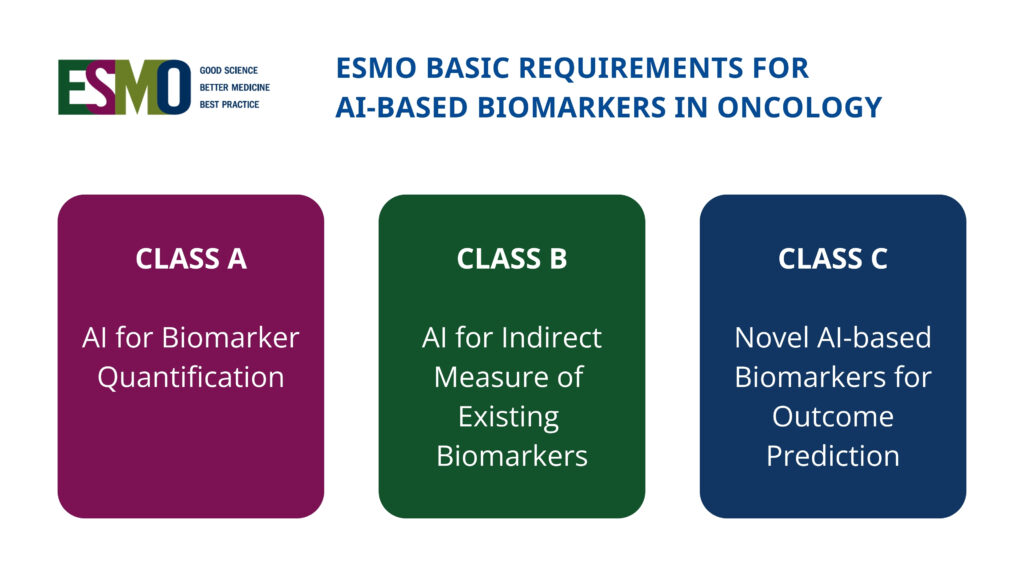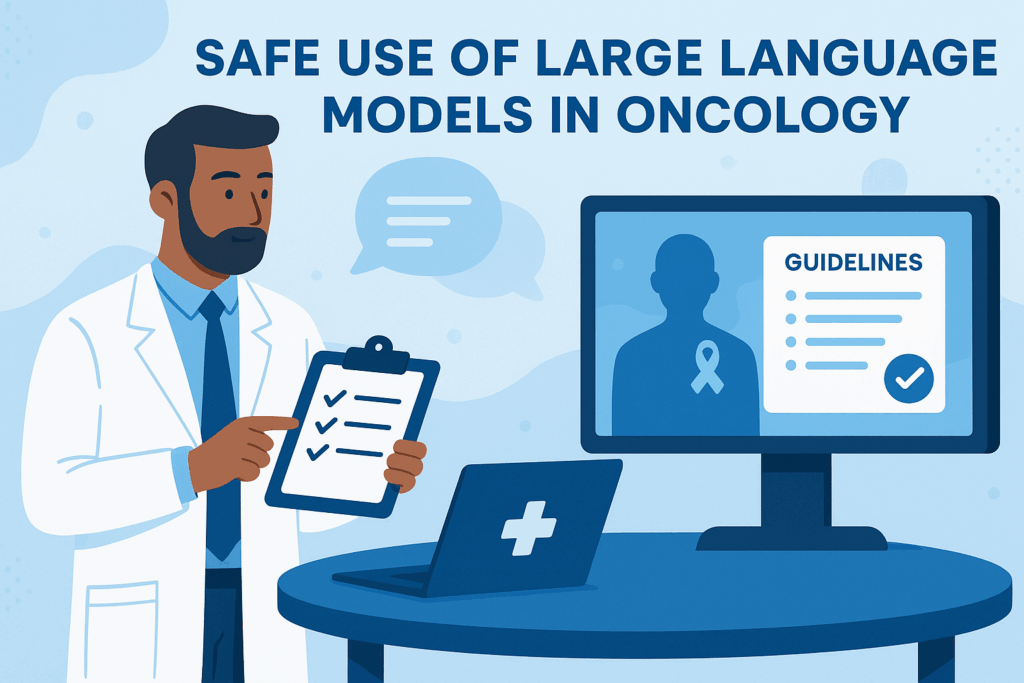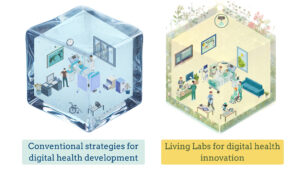Virtual companions, real responsibility
VisionMed
From May 9 to 10, 2025, the EKFZ in Dresden once again hosted a seminar for Roland Berger Foundation fellows. Entitled “VisionMed: Artificial Intelligence and Smart Solutions in Medicine,” the seminar provided fellows with insights into current research at the intersection of medicine and digital technologies.
Dr. Uta Gutbier opened the event by welcoming the fellows and introducing them to this exciting field of digital health. This was followed by a presentation from Prof. Dr. Ivan Minev and his team, who showcased their research on biocompatible, implantable electrodes. In an interactive session, participants experienced how the body’s electrical signals can be measured, transmitted, and applied in medical contexts.
PD Dr. Witold Polanski delivered an engaging lecture titled “Welcome to the Matrix”, offering a deep dive into the field of brain-computer interfaces and their relevance for neurosurgery. He explained the current state of the technology, clinical applications, and provided a glimpse into what might be possible in the future. Antonia Zacharias-Weihs from the Central Student Information and Counseling Service provided information on study programs in the fields of medicine and technology at TU Dresden.
In the afternoon, the Barkhausen Institut in Dresden’s city center opened its doors for two hands-on workshops: The team of the learning lab presented “Hands-on Medical Technology”, explaining the importance of sensors and letting the students control robotic arms through body movements. At a second station, the fellows explored the technology used in minimally invasive surgery (laparoscopy) and had the opportunity to try themselves on a simulator.
The second day of the seminar began with a keynote by Dr. Hannah Muti on “Artificial Intelligence in Medicine.” She clearly illustrated the diverse applications of AI, such as in diagnostics and therapy planning. In addition, she discussed current challenges such as data protection and ethical considerations. In the following workshop, the students worked in small groups to develop their own creative ideas for AI-supported solutions in medicine.
During the farewell lunch and a campus tour of the University Hospital Dresden, participants reflected on their experiences and learned more about the long history of the University Hospital Carl Gustav Carus.
The event highlighted the transformative potential of digitalization in medicine – and how important it is to excite young talents for these topics at an early stage. The EKFZ is delighted to be actively contributing to the promotion of young talents with such inspiring events.
The laparoscopy training station at the Barkhausen Institut (BI) is part of the “Talk about Endoscopy!” project. It was previously part of the interactive exhibition at the COSMO Science Forum from October 2024 to February 2025 and is now located in BI’s Learning Lab. The project is a collaboration between BI and the EKFZ for Digital Health, and is funded by the VolkswagenStiftung.
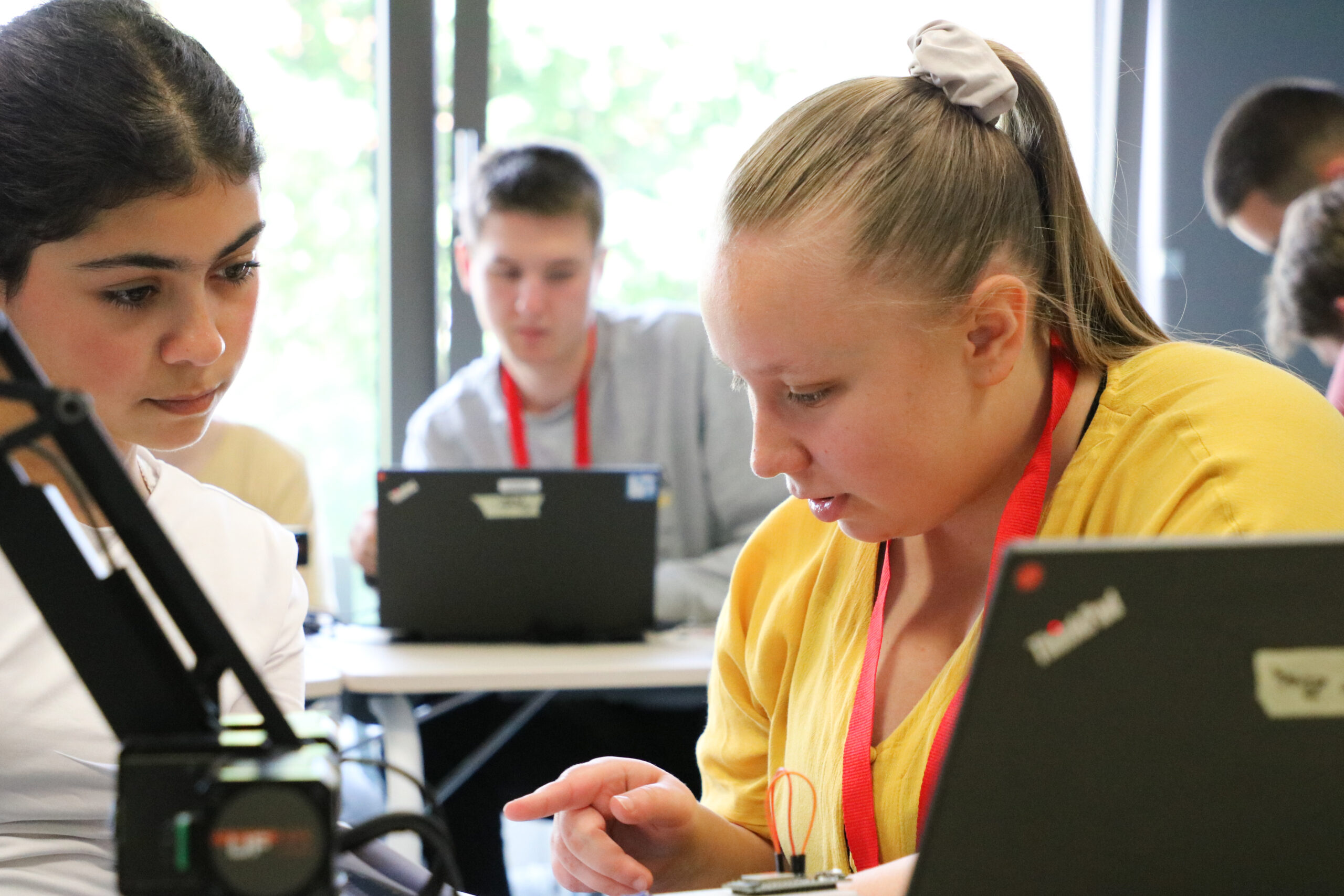
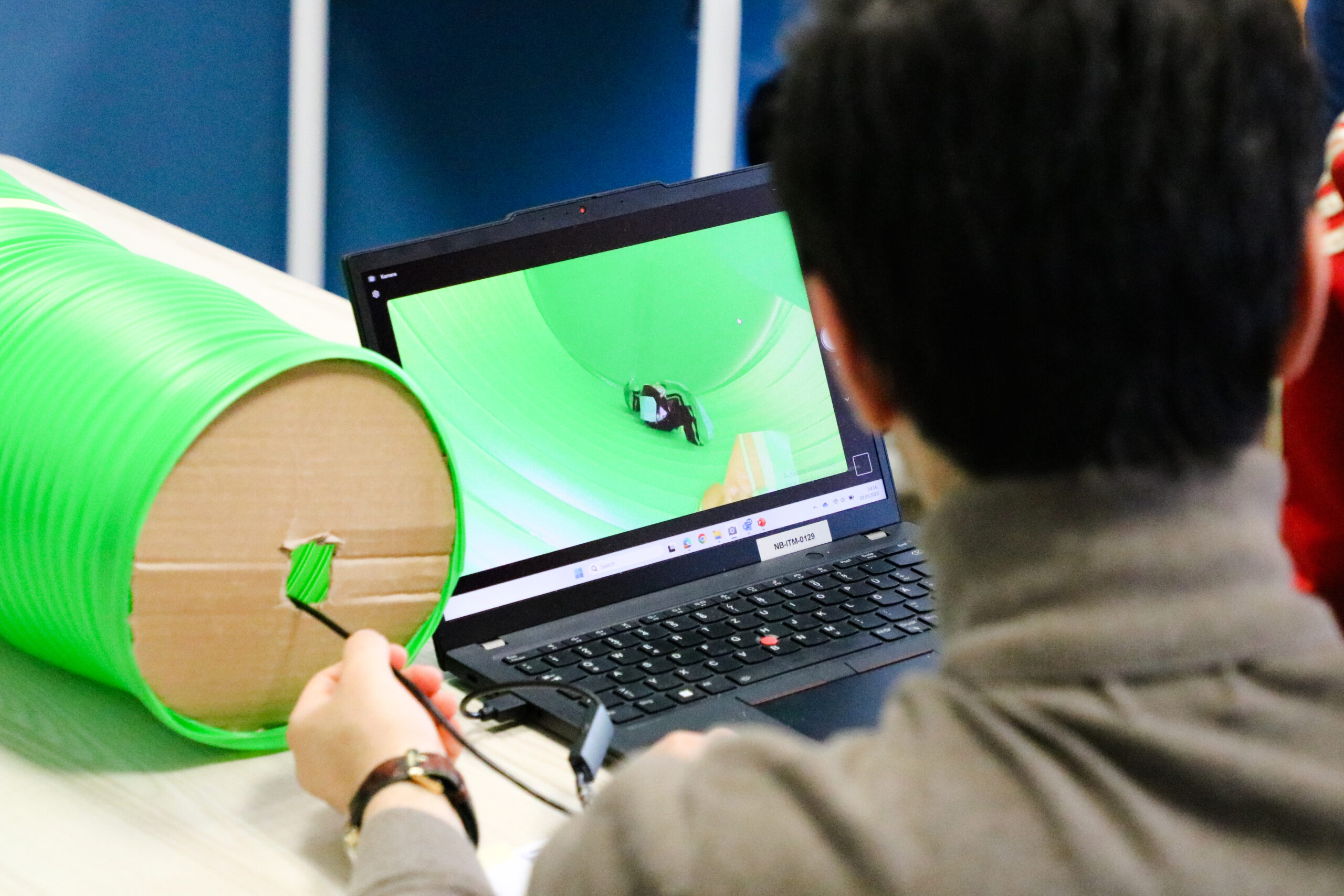
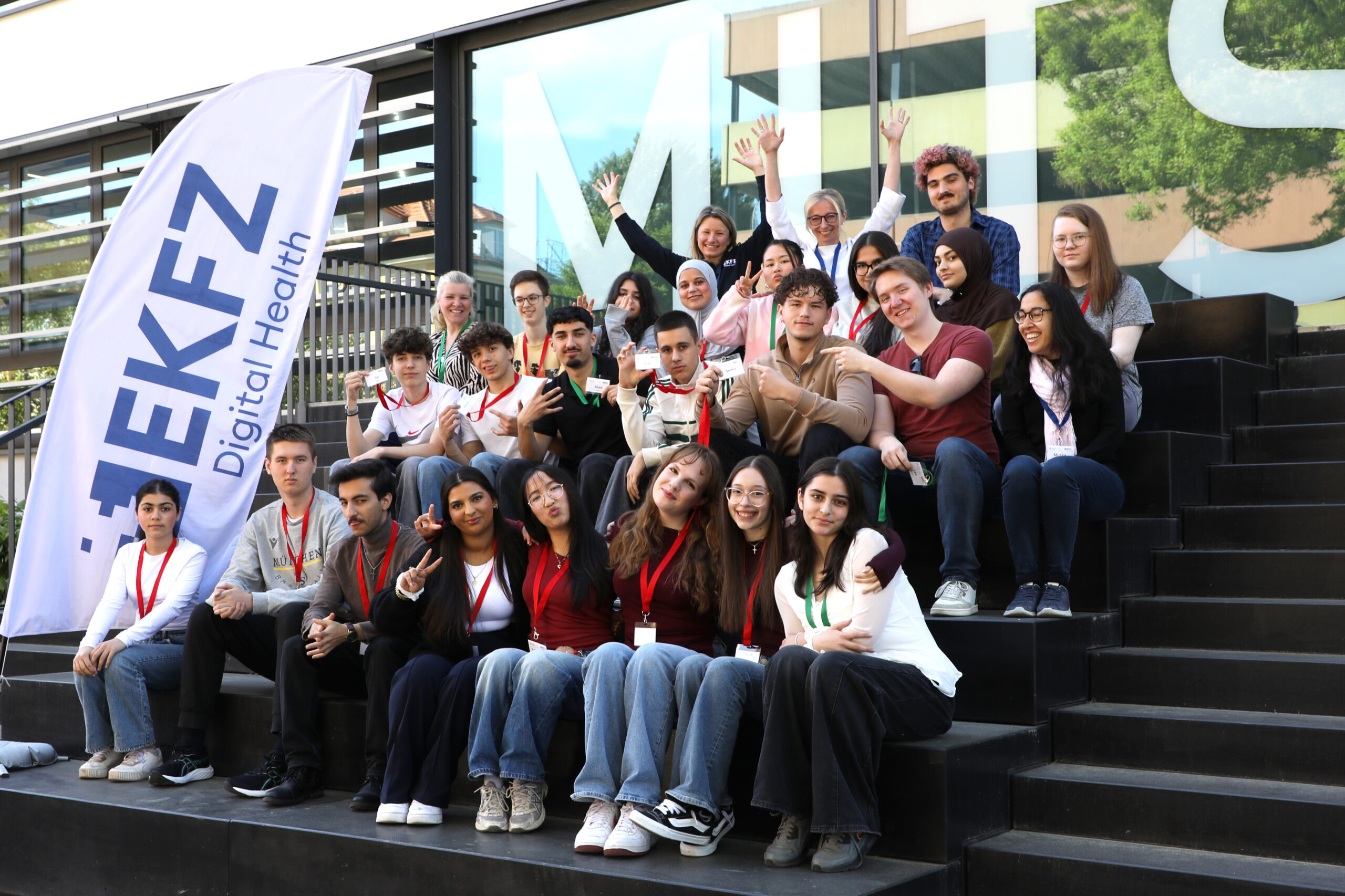
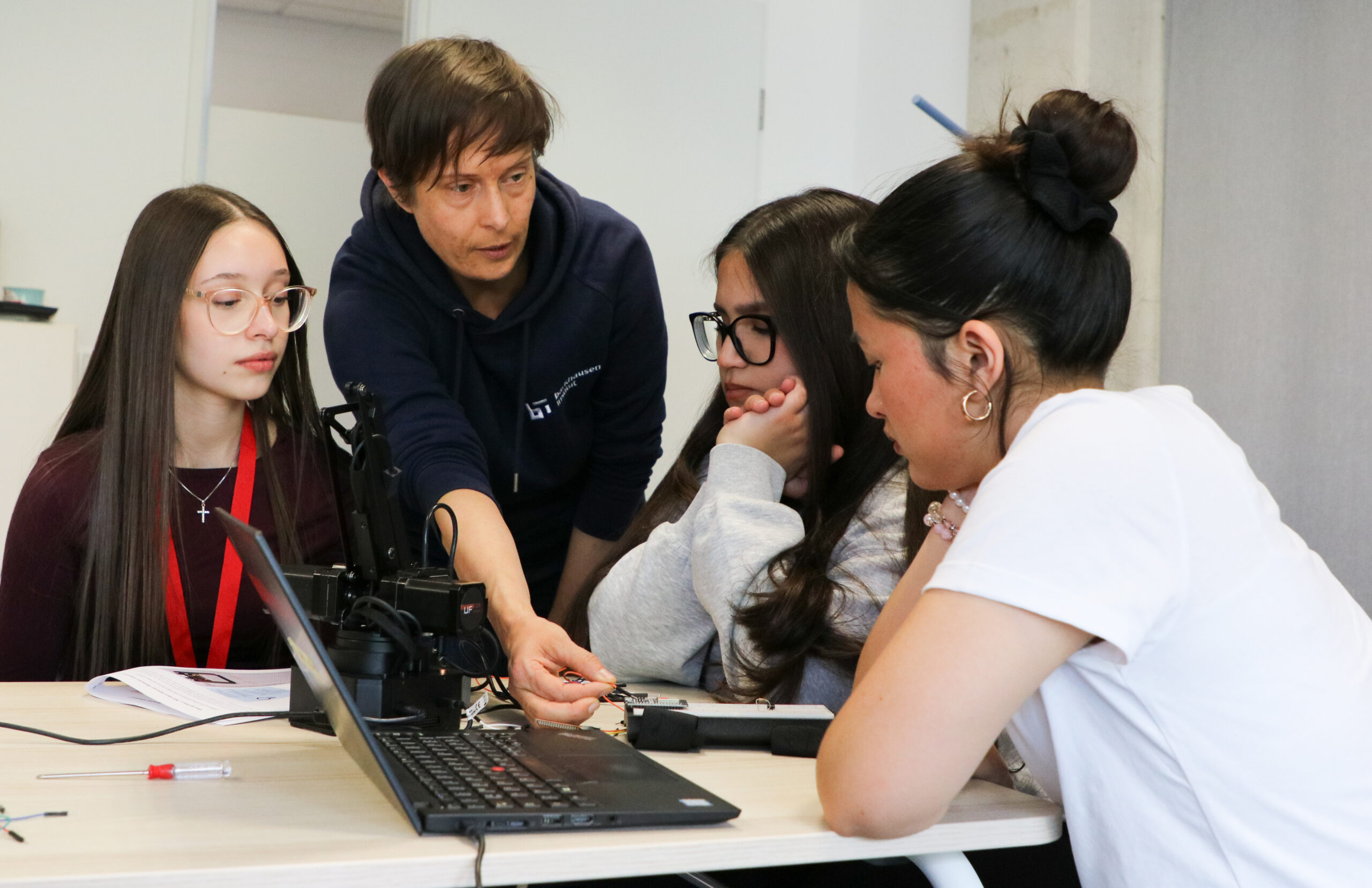
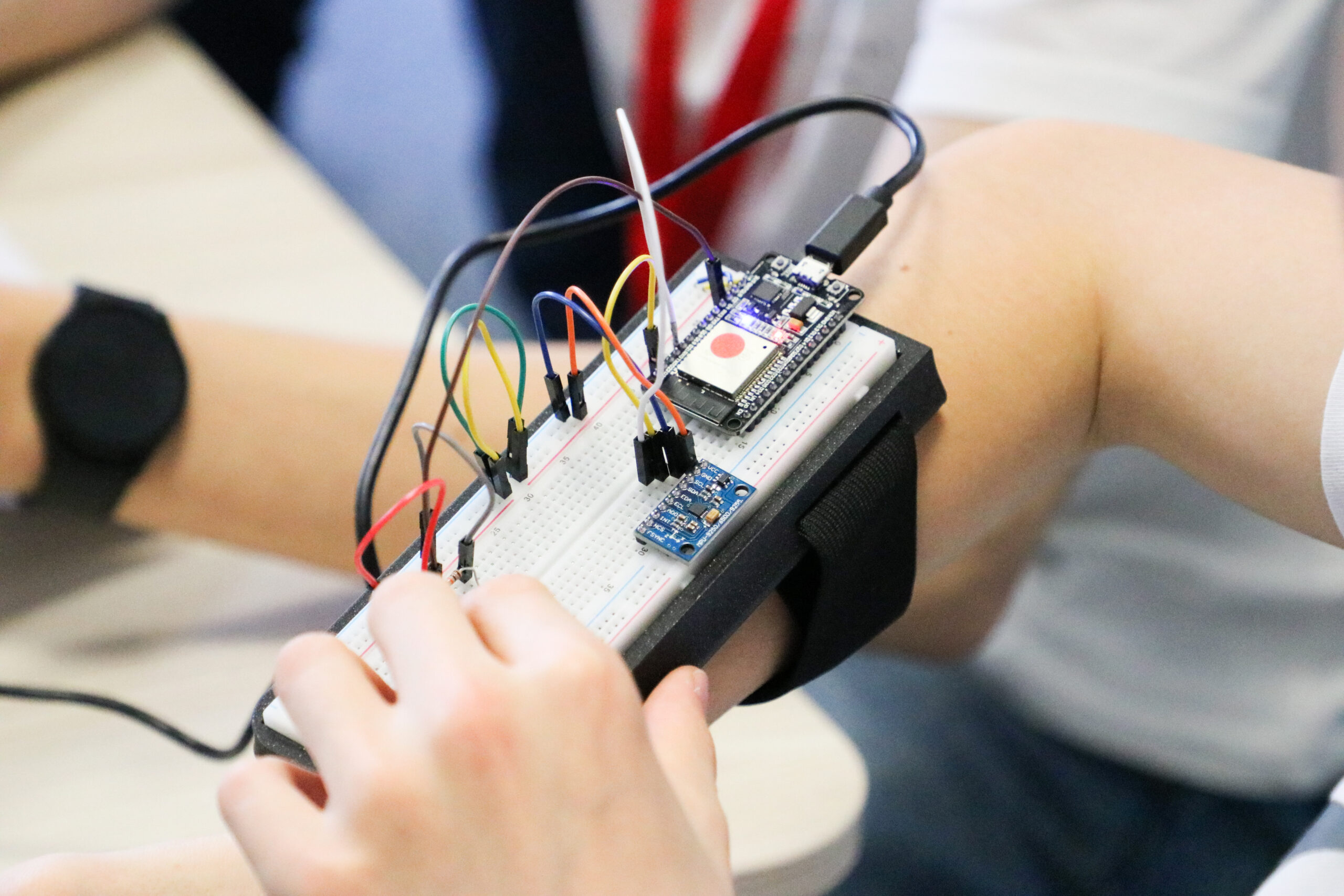
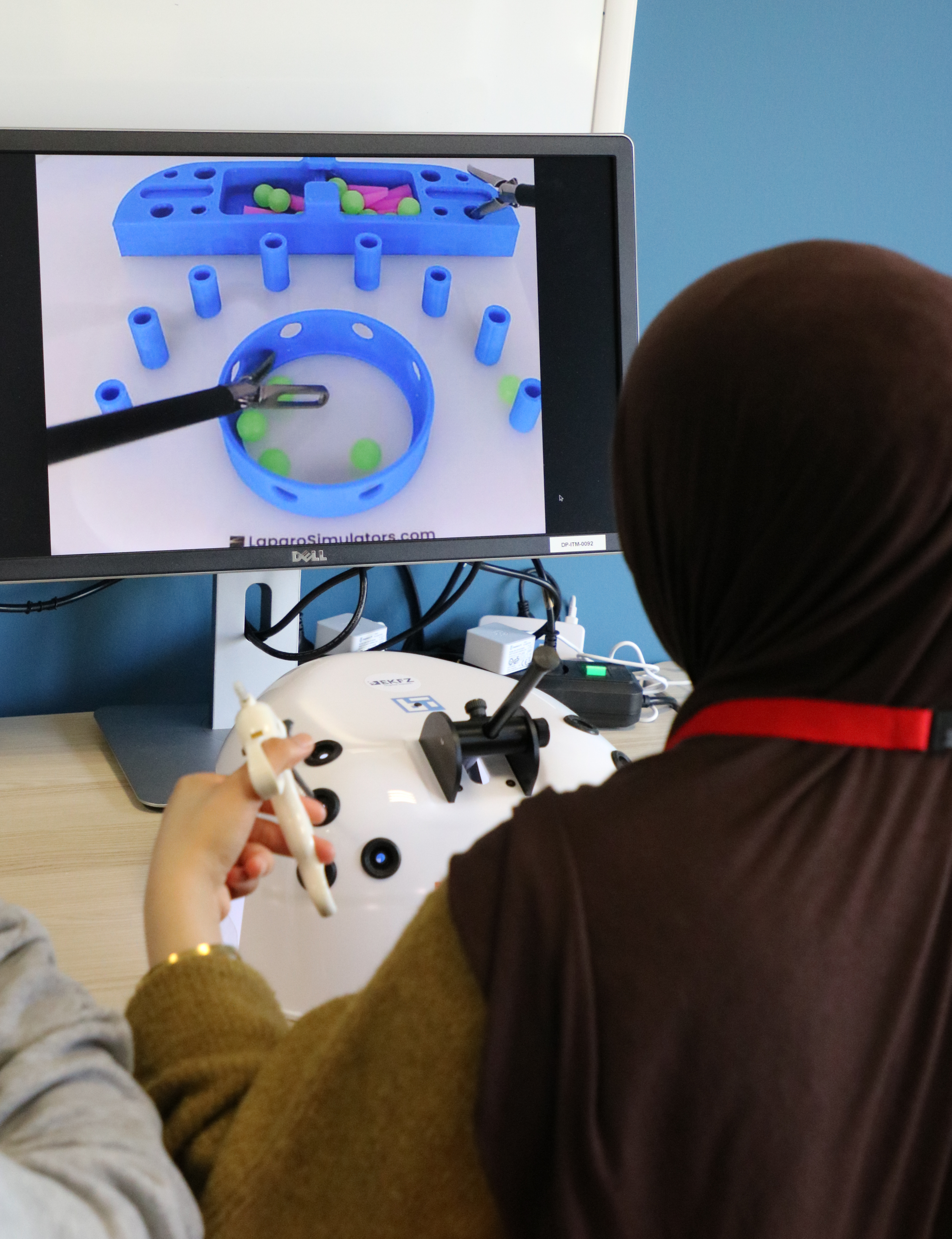
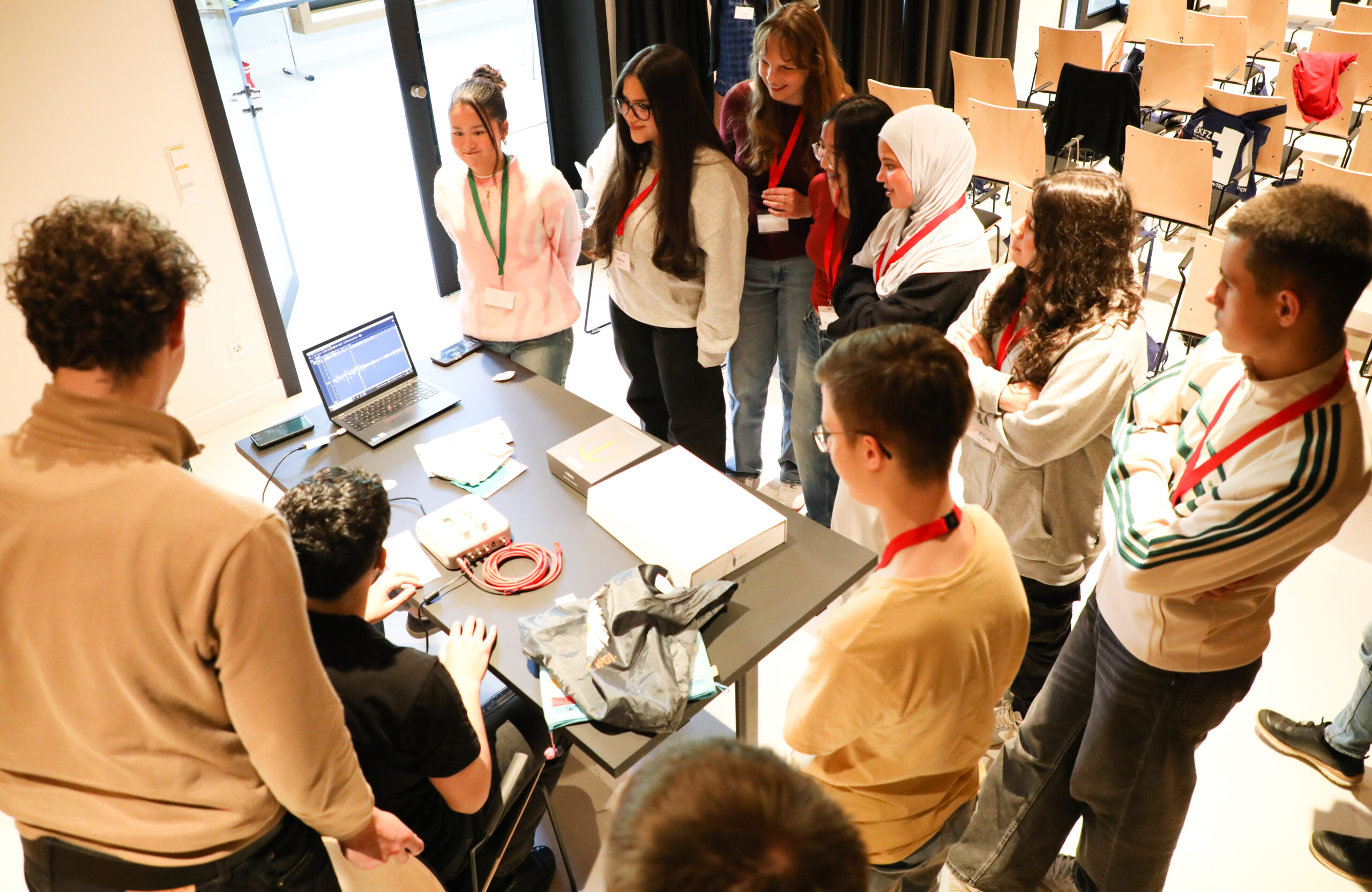
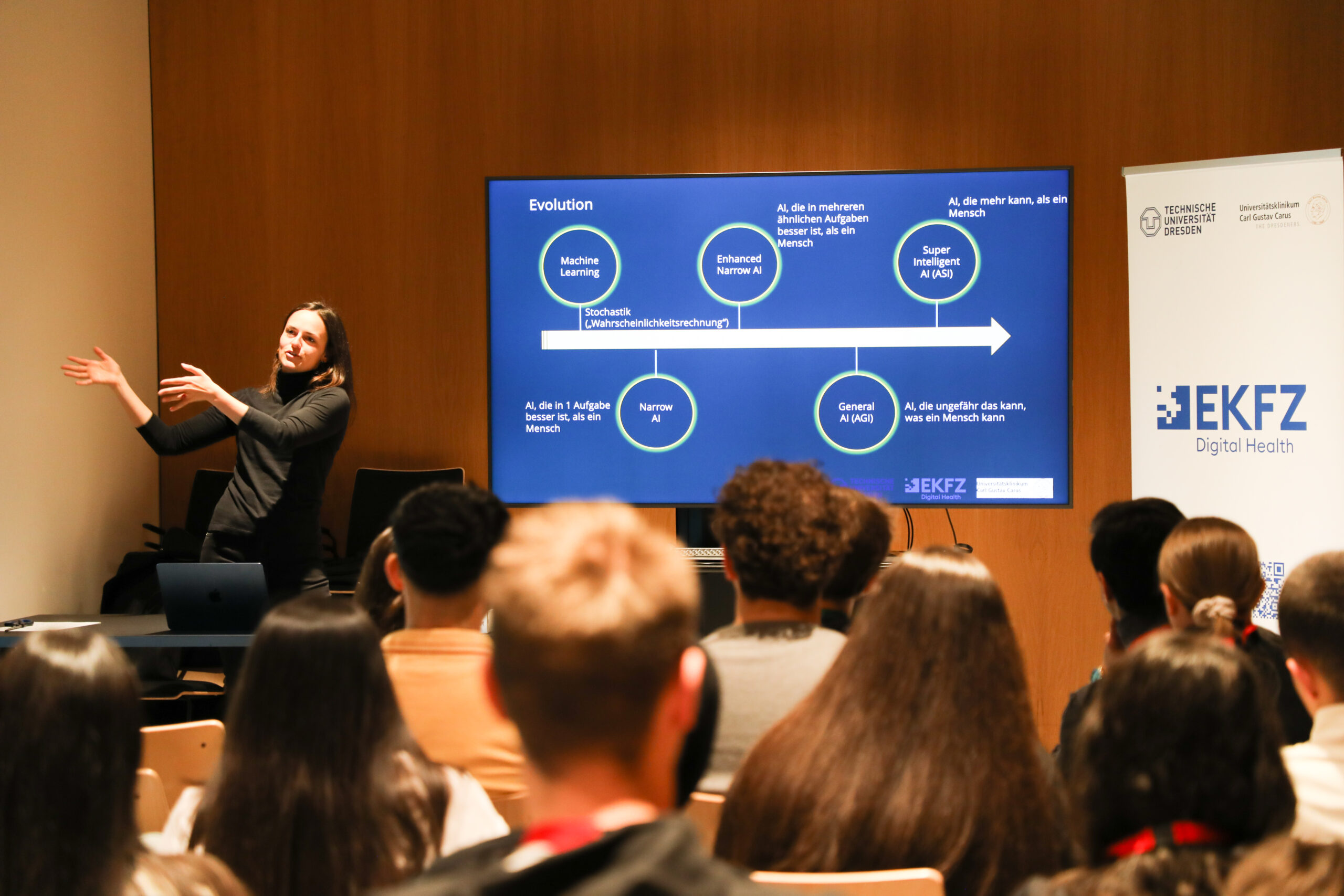
More News
New international framework defines standards for AI-based biomarkers in oncology (EBAI)
New ESMO Guidelines: Safe use of large language models in oncology


